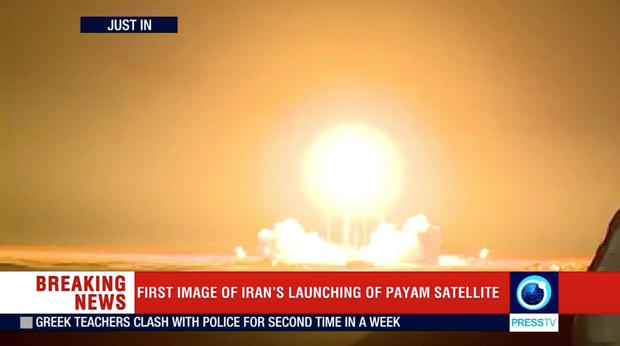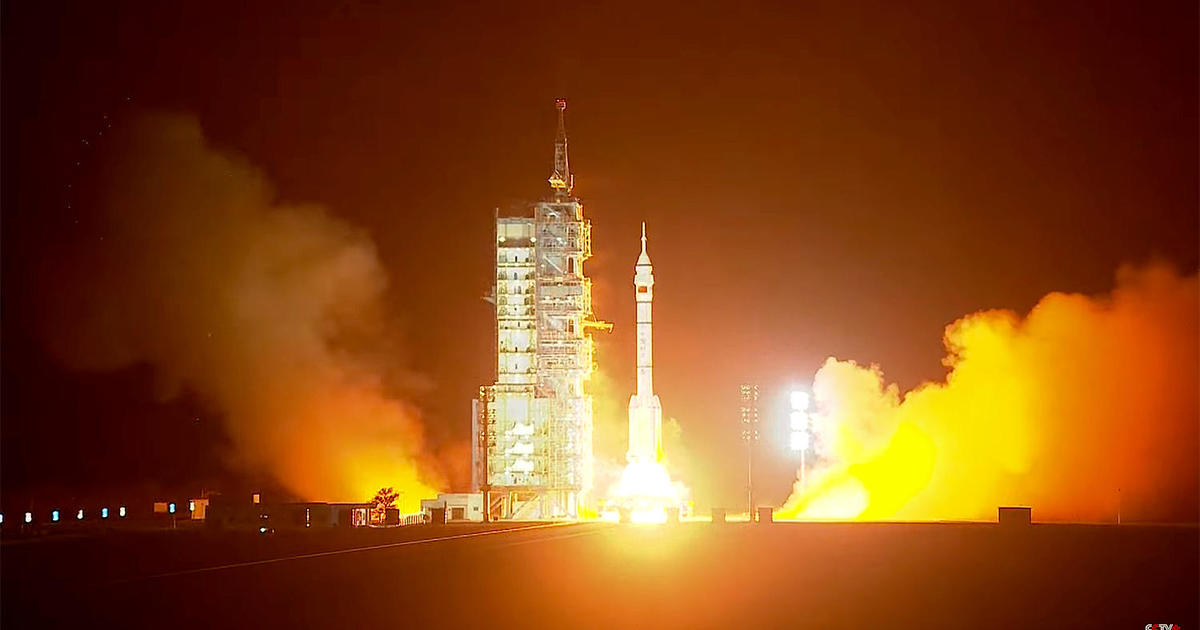Iran admits failed launch of satellite U.S. worries about
TEHRAN -- Iran on Tuesday conducted one of at least two satellite launches it plans despite criticism from the United States, but the satellite failed to reach orbit, an official said.
The rocket carrying the Payam satellite failed to reach the "necessary speed" in the third stage of its launch, Telecommunications Minister Mohammad Javad Azari Jahromi said.
Jahromi said the rocket had successfully passed its first and second stages before developing problems in the third. He didn't elaborate on what caused the rocket failure but promised that Iranian scientists would continue their work.
Tuesday's launch took place at Imam Khomeini Space Center in Iran's Semnan province, a facility under the control of the country's Defense Ministry, Jahromi said. Satellite images published last week and first reported by CNN showed activity at the launch site. Given the facility's launching corridor, the satellite likely fell in the Indian Ocean.
Iran has said it plans to send two satellites, Payam and Doosti, into orbit. Payam means "message" in Farsi, while Doosti means "friendship."
It's unclear how the failure of the Payam will affect the launch timing for the Doosti. Jahromi tweeted that "Doosti is waiting for orbit," without elaborating.
"We should not come up short or stop," Azari-Jahromi wrote, according to the Reuters news agency. "It's exactly in these circumstances that we Iranians are different than other people in spirit and bravery."
The Payam satellite was meant for use in communications and imaging and had four cameras, Reuters reports.
Iranian state television had aired footage of its reporter narrating the launch of the Simorgh rocket, shouting over its roar that it sent "a message of the pride, self-confidence and willpower of Iranian youth to the world!"
The TV footage shows the rocket becoming just a pinpoint of light in the darkened sky, but not the moment of its failure. Jahromi's comments that the problem developed in the launch's third stage suggest something went wrong after the rocket pushed the satellite out of the Earth's atmosphere.
The Simorgh, which means "phoenix" in Farsi, has been used in previous satellite launches. It's larger than a model known as the Safir, or "ambassador," that Iran previously used to launch satellites.
Iran usually displays space achievements in February during the anniversary of its 1979 Islamic Revolution. This year will mark the 40th anniversary of the revolution amid Tehran facing increasing pressure from the U.S. under the Trump administration.
U.S. Secretary of State Mike Pompeo has said that Iran's plans for sending satellites into orbit demonstrate the country's defiance of a U.N. Security Council resolution that calls on Tehran not to undertake any activity related to ballistic missiles capable of delivering nuclear weapons.
In Israel, Prime Minister Benjamin Netanyahu promptly slammed Iran over the launch, accusing Tehran of lying and alleging that the "innocent satellite" was actually "the first stage of an intercontinental missile" Iran is developing in violation of international agreements.
Iran insists the launches don't violate the resolution.
Over the past decade, Iran has sent several short-lived satellites into orbit and in 2013 launched a monkey into space.
The U.S. and its allies worry the same satellite-launching technology could be used to develop long-range missiles that could carry nuclear weapons.
Iran denies wanting nuclear weapons. A 2015 nuclear deal it struck with world powers limited its enrichment of uranium in exchange for the lifting of economic sanctions.
However, President Trump pulled America out of the deal in May. While United Nations inspectors say Iran has honored the deal up to this point, it has threatened to resume higher enrichment.




